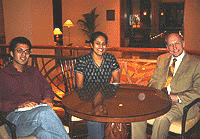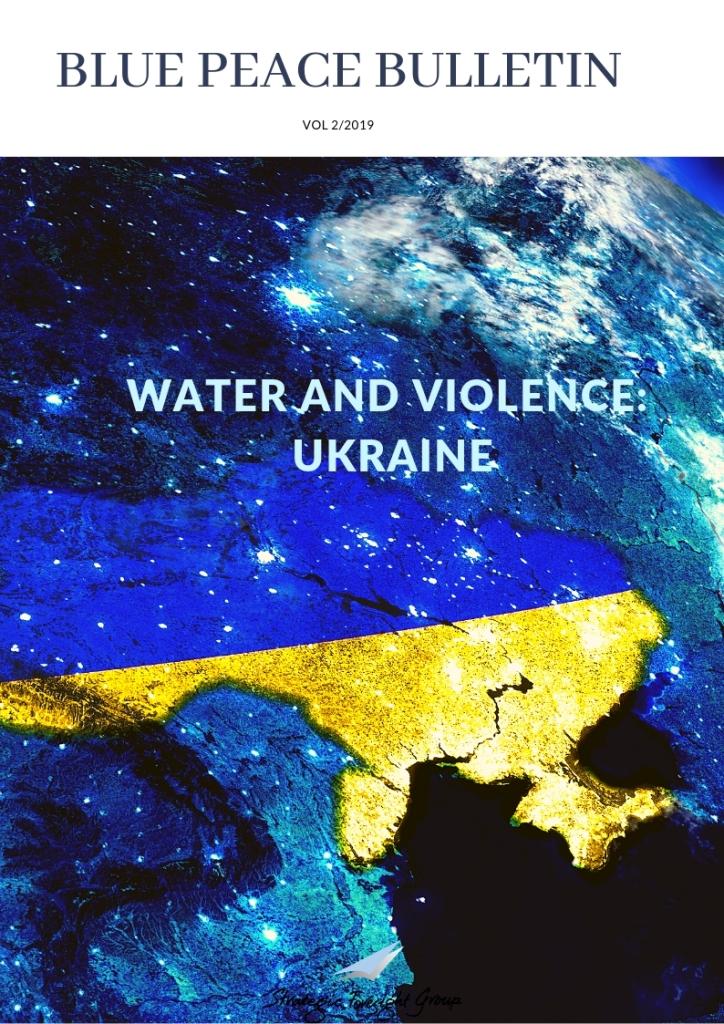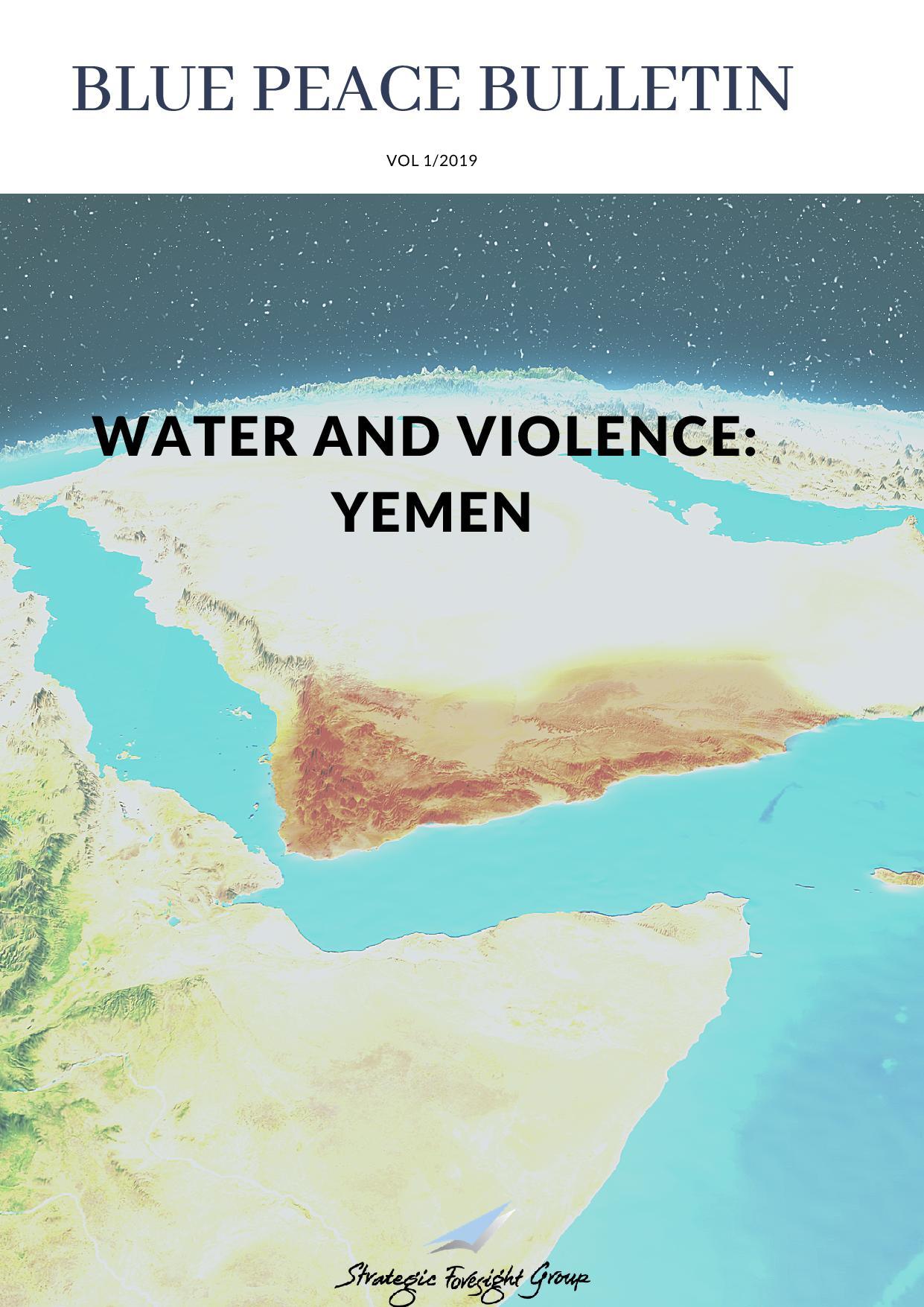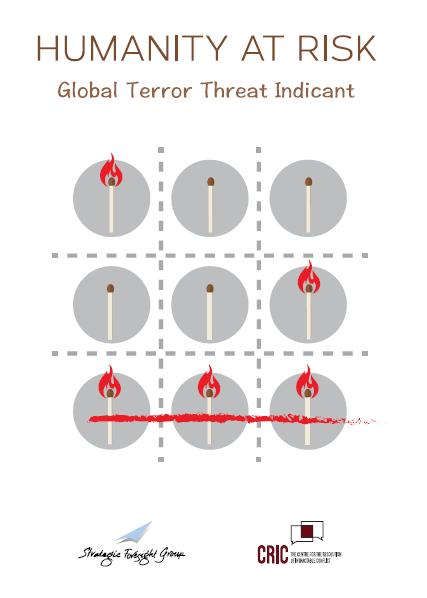The New East
|
|
27 February, 2007
By
|
Ambassador Ortwin Hennig is the Vice President and the Head of Conflict Prevention Program of the East West Institute at Brussels. His previous assignments include the Commissioner for Civilian Crisis Prevention, Conflict Resolution and Post-Conflict Peace Building in the German Government; diplomatic postings in Afghanistan, Russia, German Representation at the European Commission and the OSCE in Vienna. He has also served the Office of the German Federal President as a Foreign Policy Advisor. Ambassador Hennig is an alumnus of the NATO Defence College in Rome having specialized in arms control and security policy matters.

Aditya Adhikari, Sahiba Trivedi
and Amb Hennig
The conversation with Amb Hennig covered a broad range of topics ranging from his visit to India to the �€˜war on terror�€™. He started by telling us about how this trip to India was not his first one; he had stopped in India on route to his very first diplomatic mission in Kabul. He remembered fondly how his stay in India then had also been around the Indian Republic Day, Jan 26th. He had been and still was amazed at the seeming ease with which the teeming diversity co-existed in India. Ambassador Hennig was interested in knowing more about India and her relations with her neighbours including Nepal, Bangladesh and Pakistan. We talked about Nepal�€™s uncertain relations with India after the change in regime with the Maoists coming to power. While talking about Indo-Bangladesh relations, Bangladesh�€™s water dispute with India regarding the Feni River came under discussion. The Ambassador hoped that the issue would be resolved soon, in interests of stability in the South-Asian region. In the larger Asian context, while comparing Europe and US vis-à-vis their perception of China, he said that in general, China was perceived to be an economic giant in Europe as opposed to the US where China was more of a military threat. Amb. Hennig was of the opinion that peace in the South-Asian region was largely dependent upon India and China and their relations with their neighbours.
Speaking about terrorism across the world, he said that terrorism was not a product of any particular religion; its root cause was deprivation. The conversation also dealt with the issue of enforcing democracy in countries like Iraq and Afghanistan. His drew on his experiences in Afghanistan to underline how he thought it was extremely difficult to enforce a type of political system on any nation state.
Ambassador Hennig then went on to give us a brief on the history and mission of The East West Institute. Conceived in 1981, the Institute�€™s primary impetus at the time was on the impending Cold War. With that coming to an end in the 1990s, East West Institute had to evolve from its earlier agenda. From defining �€˜East�€™ and �€˜West�€™ in terms of the Warsaw Bloc and NATO respectively, the Institute has come a long way. In the current global landscape, while �€˜West�€™ may still refer to the western nations, the East West Institute now defines �€˜East�€™ as Asia particularly India and China. Ambassador Hennig explained that since India and China were poised to become the next global powers with their double-digit growth figures and their military might, it is essential for the east and the west to come to table to sort out their differences and work on collaborating with each other.
Related Publications
Related latest News
Related Conferences Reports
-

P5 Experts Roundtable on Nuclear Risk Reduction
Download:Geneva Roundtable Report
-

Roundtable on Global Security and Catastrophic Risks
Download:Report on RT revise





